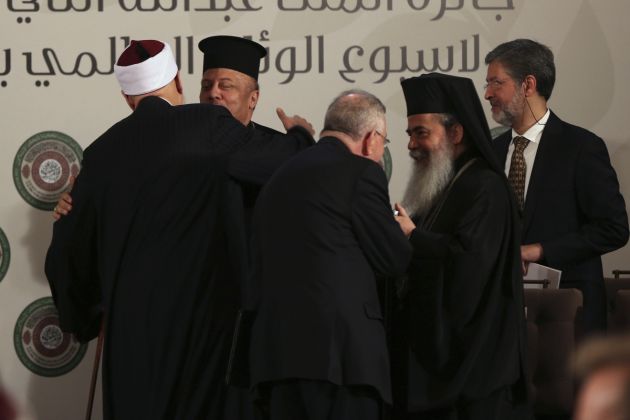Multi-faith group backs US bipartisan support for persecuted Middle East Christians

A multi-faith group including more than 200 Christians representing a broad range of traditions has joined an initiative by members of both the two main parties in the U.S. Congress to support Christians facing persecution in Egypt, Iraq, and Syria.
The "Pledge of Solidarity & Call to Action on behalf of Christians and other Small Religious Communities in Egypt, Iraq and Syria," was initiated May 7 by Representatives Republican Frank Wolf from Virginia and Democrat Anna Eshoo from California.
"In today's Middle East, the majority of the Christian faith communities, which include Orthodox, Catholics, and Protestants, suffer violence, abuse and injustice from extremist Islamic forces by virtue of being Christian," the pledge says.
It notes that despite the existential threat Christianity is facing in the region where it as its root, Middle East churches fear they have "been largely ignored" by believers in the West.
The group noted that "A generation ago, American religious leaders successfully mobilized support for the International Religious Freedom Act of 1998."
That law established the U.S. Commission on International Religious Freedom and institutionalized regular reporting by the U.S. State Department on the status of religious liberty around the world.
"Now, new action is desperately needed by our churches, our government and our civil society institutions here in the United States, and by all people of good will to make that objective a reality."
'SILENCE FACING CHRISTIANS'
The initiative was launched to deal with silence facing Christians in the Middle East "facing an existential threat to their presence in the lands where Christianity has its roots" due to "abuse and injustice from extremist Islamic forces."
The pledge says, "Recognizing the spiritual, humanitarian and geopolitical implications of this historic flight, we have joined together to affirm our moral obligation to speak and act in defense of religious freedom for all human beings."
The document delves into violence and persecution Christians face in countries throughout the Middle East, particularly in Egypt, Iraq, and Syria, where Christian refugees have fled due to persecution.
"Extremists and terrorist gangs are behind most of these incidents; they have been carried out largely with impunity, and sometimes with the acquiescence of state and local authorities.
"It is their cumulative effect that has triggered the current massive exodus of Christians."
The undertaking urges American religious leaders "to pray and speak with greater urgency about this human rights crisis."
"The sense of abandonment felt by the Middle Eastern Churches is reflected in the searing words of Patriarch Sako, last December: "We feel forgotten and isolated. We sometimes wonder, if they kill us all, what would be the reaction of Christians in the West? Would they do something then?"
Catholic, Protestant and Orthodox leaders have signed the pledge as have Evangelicals.
The group include civic society leaders and includes Robert George of Princeton University, Jim Wallis of Sojourners, George Weigel of the Ethics and Public Policy Center, journalist Kirsten Powers, George Marlin, chair of Aid to the Church in Need-USA, Lynne Hybels of Global Engagement of the Willow Creek Church and Mark Tooley, President, Institute on Religion and Democracy.